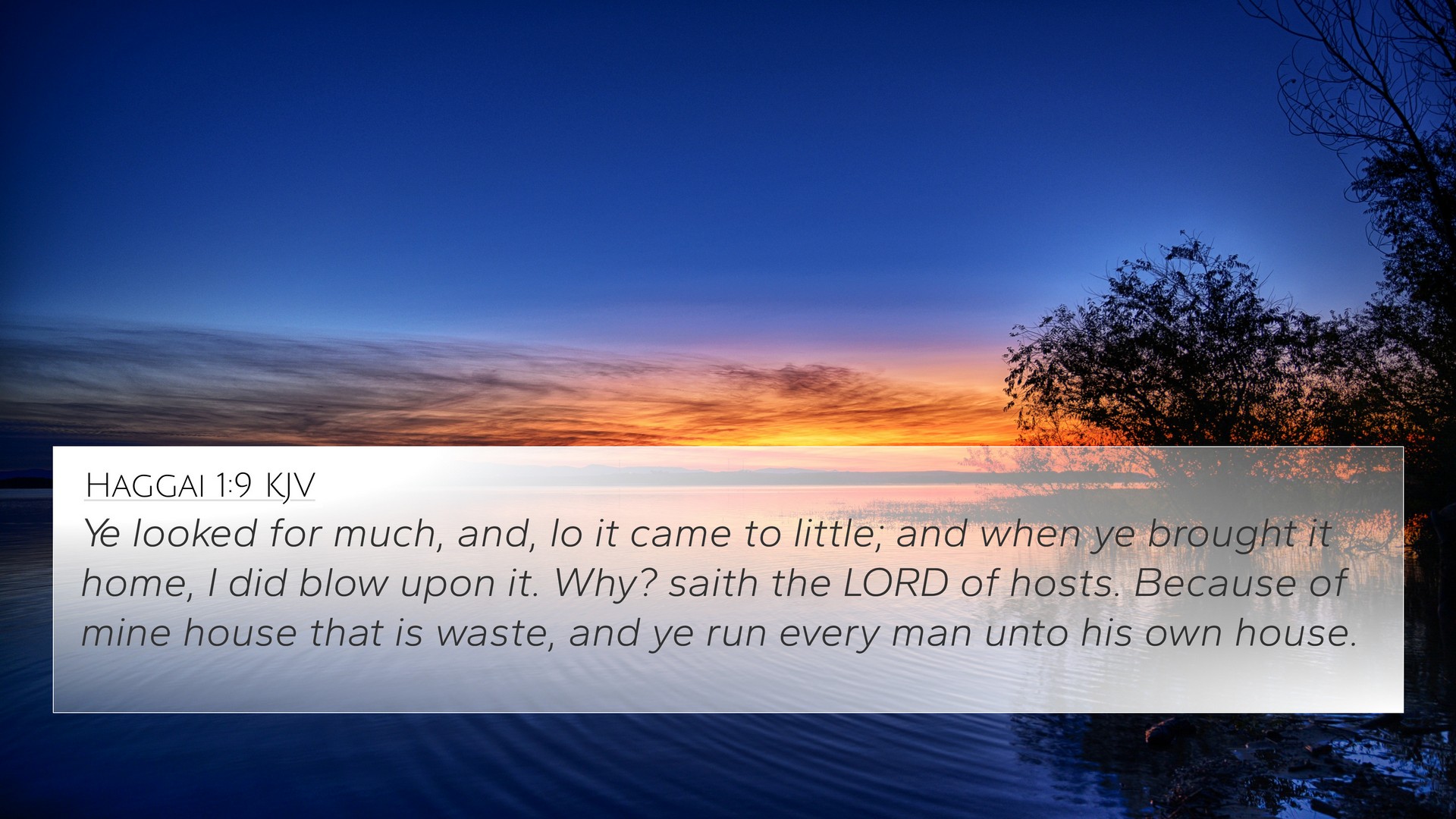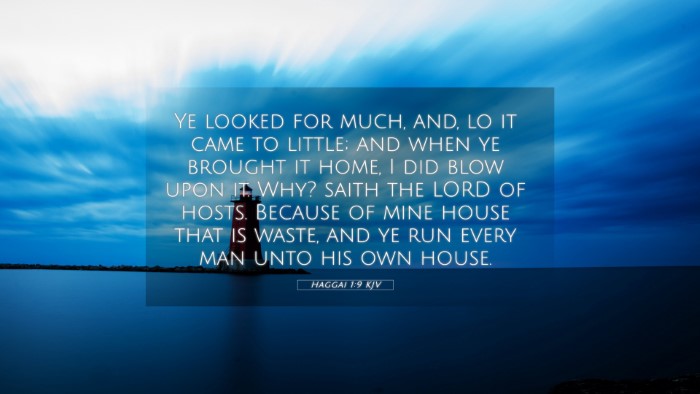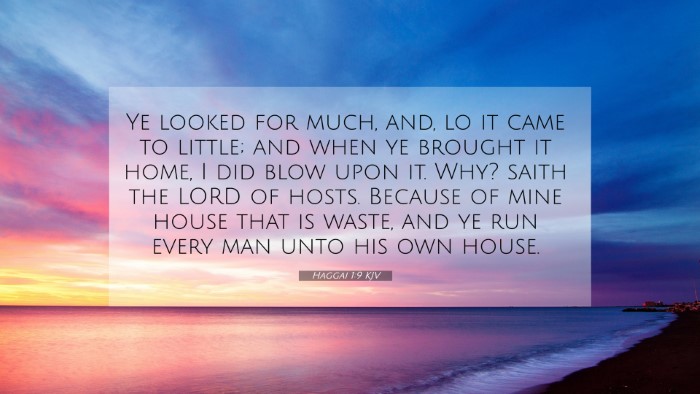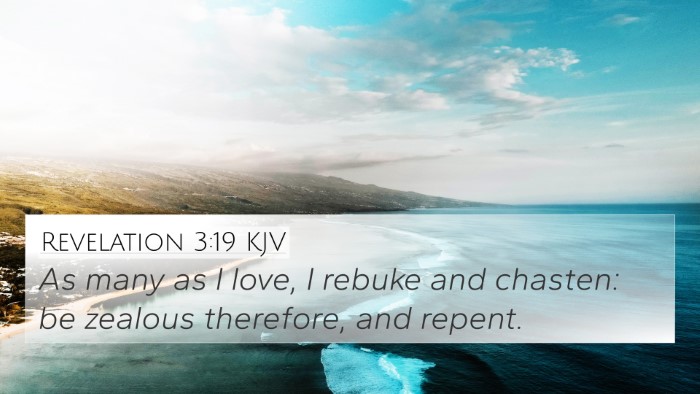Old Testament
Genesis Exodus Leviticus Numbers Deuteronomy Joshua Judges Ruth 1 Samuel 2 Samuel 1 Kings 2 Kings 1 Chronicles 2 Chronicles Ezra Nehemiah Esther Job Psalms Proverbs Ecclesiastes Song of Solomon Isaiah Jeremiah Lamentations Ezekiel Daniel Hosea Joel Amos Obadiah Jonah Micah Nahum Habakkuk Zephaniah Haggai Zechariah MalachiHaggai 1:9 Similar Verses
Haggai 1:9 Cross References
Ye looked for much, and, lo it came to little; and when ye brought it home, I did blow upon it. Why? saith the LORD of hosts. Because of mine house that is waste, and ye run every man unto his own house.
Uncover the Rich Themes and Topics of This Bible Verse
Listed below are the Bible themes associated with Haggai 1:9. We invite you to explore each theme to gain deeper insights into the Scriptures.
Haggai 1:9 Cross Reference Verses
This section features a detailed cross-reference designed to enrich your understanding of the Scriptures. Below, you will find carefully selected verses that echo the themes and teachings related to Haggai 1:9 KJV. Click on any image to explore detailed analyses of related Bible verses and uncover deeper theological insights.

Haggai 1:4 (KJV) »
Is it time for you, O ye, to dwell in your cieled houses, and this house lie waste?

Isaiah 40:7 (KJV) »
The grass withereth, the flower fadeth: because the spirit of the LORD bloweth upon it: surely the people is grass.

Haggai 1:6 (KJV) »
Ye have sown much, and bring in little; ye eat, but ye have not enough; ye drink, but ye are not filled with drink; ye clothe you, but there is none warm; and he that earneth wages earneth wages to put it into a bag with holes.

Revelation 2:4 (KJV) »
Nevertheless I have somewhat against thee, because thou hast left thy first love.
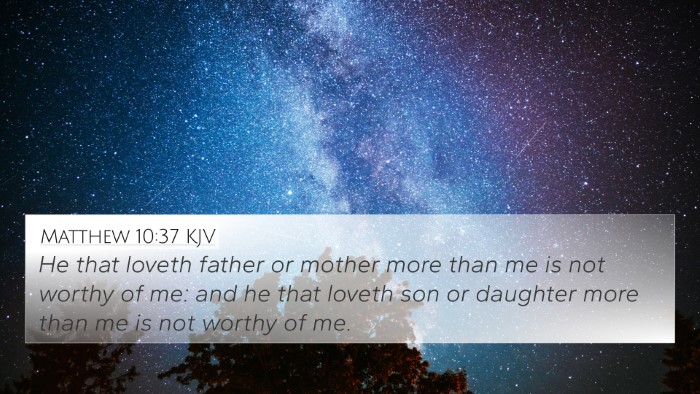
Matthew 10:37 (KJV) »
He that loveth father or mother more than me is not worthy of me: and he that loveth son or daughter more than me is not worthy of me.

Malachi 3:8 (KJV) »
Will a man rob God? Yet ye have robbed me. But ye say, Wherein have we robbed thee? In tithes and offerings.
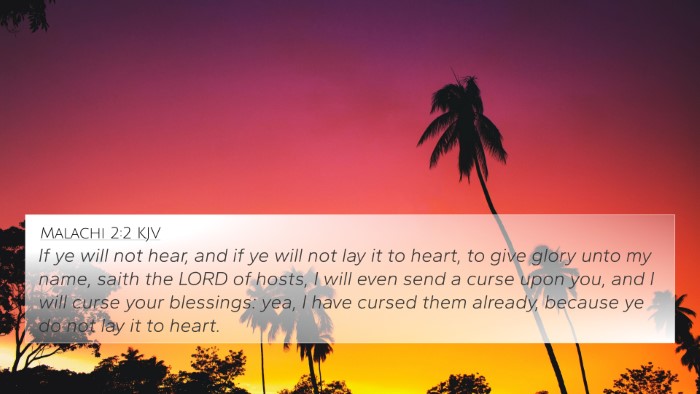
Malachi 2:2 (KJV) »
If ye will not hear, and if ye will not lay it to heart, to give glory unto my name, saith the LORD of hosts, I will even send a curse upon you, and I will curse your blessings: yea, I have cursed them already, because ye do not lay it to heart.
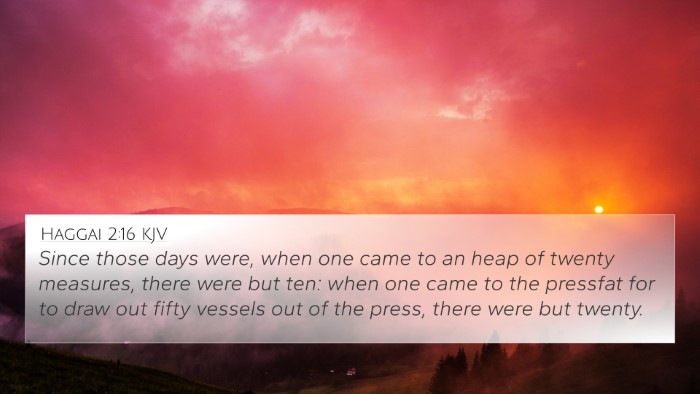
Haggai 2:16 (KJV) »
Since those days were, when one came to an heap of twenty measures, there were but ten: when one came to the pressfat for to draw out fifty vessels out of the press, there were but twenty.

Joshua 7:10 (KJV) »
And the LORD said unto Joshua, Get thee up; wherefore liest thou thus upon thy face?
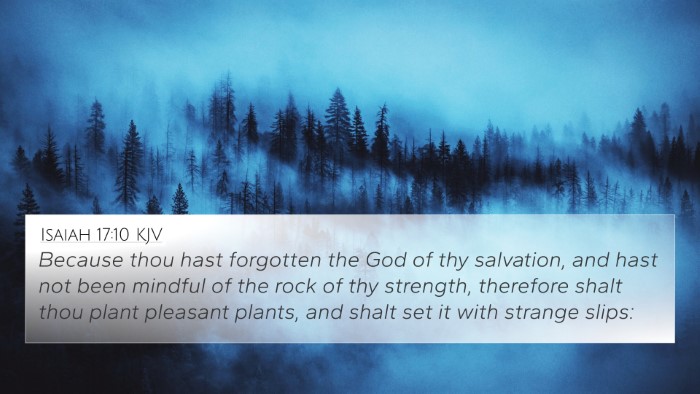
Isaiah 17:10 (KJV) »
Because thou hast forgotten the God of thy salvation, and hast not been mindful of the rock of thy strength, therefore shalt thou plant pleasant plants, and shalt set it with strange slips:

2 Kings 19:7 (KJV) »
Behold, I will send a blast upon him, and he shall hear a rumour, and shall return to his own land; and I will cause him to fall by the sword in his own land.
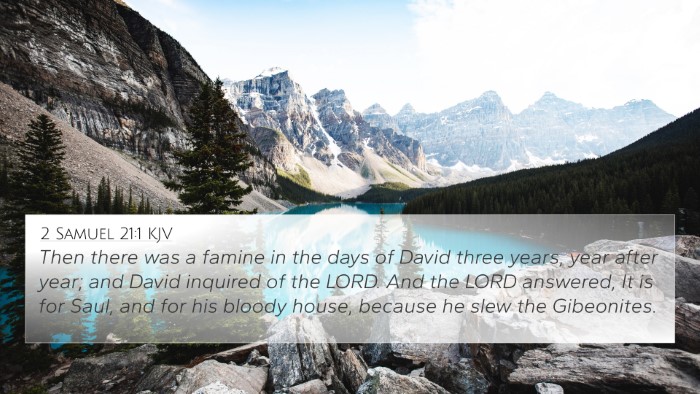
2 Samuel 21:1 (KJV) »
Then there was a famine in the days of David three years, year after year; and David inquired of the LORD. And the LORD answered, It is for Saul, and for his bloody house, because he slew the Gibeonites.
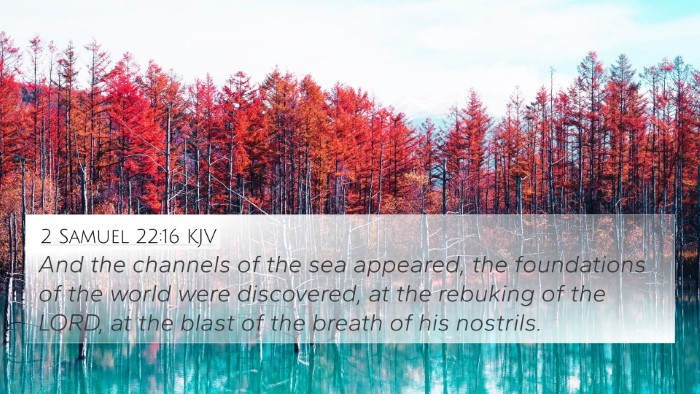
2 Samuel 22:16 (KJV) »
And the channels of the sea appeared, the foundations of the world were discovered, at the rebuking of the LORD, at the blast of the breath of his nostrils.
Haggai 1:9 Verse Analysis and Similar Verses
Understanding Haggai 1:9
Verse: "You looked for much, and behold, it came to little; and when you brought it home, I did blow upon it. Why? saith the Lord of hosts. Because of mine house that is waste, and ye run every man unto his own house."
Summary of Haggai 1:9
This verse highlights the spiritual and practical consequences of neglecting God's house while prioritizing personal interests. Haggai confronts the people of Israel, emphasizing the futility of their efforts when they disregard their obligation to God. The verse serves as a stern reminder of the relationship between devotion to God and material prosperity.
Commentary Insights
-
Matthew Henry: Matthew Henry emphasizes that the people's neglect of the temple resulted in God's judgment on their efforts. He notes that they sought abundance but ended up with barrenness, showing that a life without proper regard for God leads to disappointment. Their focus on personal gain over spiritual duties incurred divine reproach.
-
Albert Barnes: Albert Barnes points out that the Lord's chastisement was due to the people's failure to restore the temple. He explains that their hardships are a direct result of their misplaced priorities. The Lord, by blowing upon their harvests, symbolically illustrates His disapproval and the consequence of their neglect, which led to a diminishing return of their labors.
-
Adam Clarke: Adam Clarke interprets this verse as an expression of divine displeasure. He elaborates that the results of their efforts were not merely unfruitful but were intentionally diminished by God because they failed to honor Him. Clarke suggests that providing for the temple should precede pursuit of personal wealth, as true prosperity aligns with fulfilling God's purposes.
Inter-Biblical Connections
- Malachi 3:10: The call to bring tithes into the storehouse supports the principle of putting God's house first to receive blessings.
- Matthew 6:33: This passage emphasizes seeking the kingdom of God first, aligning with Haggai's exhortation about priorities.
- 1 Timothy 6:10: The love of money is the root of all evil, linking to the idea of material gain over spiritual responsibility.
- Proverbs 3:9-10: The importance of honoring the Lord with one's wealth resonates with the theme of prioritizing God's interests over personal gain.
- Zechariah 1:4: A similar call to return to the Lord and rebuild what has been neglected reinforces Haggai's message.
- Luke 12:15: Jesus warns against covetousness, similar to the empty pursuits described in Haggai.
- James 4:3: The importance of aligning one's desires with God's will corresponds with redirecting focus from self to God.
Thematic Connections
The theme of prioritizing God over personal desires is prevalent throughout Scripture. This passage encourages readers to examine their own lives regarding how they allocate their time, resources, and energy. A consistent biblical theme is that neglect of God leads to spiritual and material emptiness.
Conclusion
Haggai 1:9 serves as a powerful reminder of the necessity of prioritizing God's house and purposes in our lives. Through the insights from various public domain commentaries and inter-Biblical connections, we gain a deeper understanding of how neglecting spiritual duties leads to futility. By recognizing the importance of dedicating our resources and efforts to God, we can foster a more fruitful life aligned with His will.
